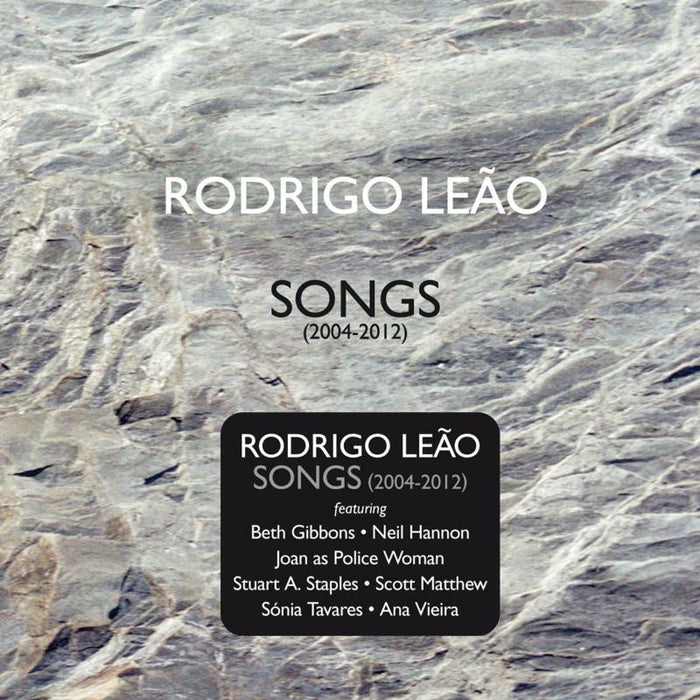Description
The name of composer Rodrigo Leao has long been familiar. First in Portugal, with the band Setima Legiao. Then, as part of another innovative project, Madredeus, his art crossed borders. When his first album under his own name (Ave Mundi Luminar) came out in 1993, he immediately realised that his music belonged to the world, and this has been confirmed throughout a career that already boasts a considerable discography, which also includes soundtracks and collaborations with big names such as Ryuichi Sakamoto, Neil Hannon (Divine Comedy), Beth Gibbons (Portishead) or Michelle Gurevich, to name but a few. Now, thirty-two years after his debut as a solo musician, comes O Rapaz da Montanha, and there's no avoiding the adjective: Rodrigo Leao's new disc is surprising, both in musical terms and even in terms of the composer's career. He himself recognises this: 'It was an unexpected record. I've had it in my head for three years and I've been building it in a very focussed way, in a different way to my previous albums, in which the composition came out without any specific time or intention. Here, starting from that phrase by Ana Carolina [Costa] 'If God forgives those who deceive/who forgives God?' [included in the theme Cadeira Preta] I immediately began to think about what I was going to do. And now that it's finished, I think it's the most Portuguese album I've made to date.' This notion of identity is true: it runs through several of the composer's discs and is visible in the compilation Os Portugueses (2018). And indeed, this new disc could fit into that identity, which in one way or another has always been present in Leao's work. Now, in 2025, O Rapaz da Montanha actually presents a change of form and substance. Musically, the use of choirs (in which the composer himself participates), which reinforces a collective feeling, and a marked percussion in some themes immediately evokes some Portuguese cantatautors from the 1970s, something that Leao recognises. The lyrical approach also changes: the ethereal and melancholic feelings that are so well represented in Leao's work give way here to a more direct language, which dialogues with a difficult but true reality. The words show men 'stuck in that gear' (O Rapaz da Montanha), subjugated women with a desire for liberation (Guarda-te), people searching for themselves (Andava Eu, Estranho Imperfeito), the hard labour at sea (Lobos do Mar) or characters struggling with their mortality and being held hostage in the most terrible of territories - the country of the 'If', of what remains to be done (Madrugada). As usual, Ana Carolina Costa is the author of most of the words, with the exceptions of Gito Lima (Estranho Imperfeito), Francisco Menezes (Esperanca) and Joao Pedro Diniz (Vento Sem Fim). In the end, what remains is a call to action, to break free from the shackles of the days, a struggle that is worth facing but that never gives up the sky of hope. 'There's nothing down there / but there's so much to do!' we sing in O Rapaz da Montanha. Rodrigo Leao's creative world has always been intimately linked to affections, whether through family or friends. Unsurprisingly, new and old accomplices appear on this album, such as Pedro Oliveira (childhood friend, singer with Setima Legiao, co-producer of the album with Leao and Joao Eleuterio and a musician on several songs and singer on Esperanca) or a friend and accomplice from various projects (Setima Legiao, Madredeus and Os Poetas): accordionist Gabriel Gomes. There is also room for guests such as Jose Peixoto (classical guitar), Carlos Poeiras (accordion), Francisco Palma (voice) or illustrator Tiago Manuel, who effortlessly become honorary citizens of Leao's work. His close family also collaborates: in addition to the author of the words and his wife Ana Carolina Costa, his children Sofia, Rosa and Antonio are present throughout the disc. Even the musicians Leao called in for this disc reflect years of work and complicity: singer Ana Vieira - the disc's main voice - Viviena Tupikova (violin), Bruno Silva (viola), Celina da Piedade (accordion), Carlos Tony Gomes (cello and author of the string arrangements), Joao Eleuterio (guitar, bass and synthesiser), Antonio Quintino (double bass) and Frederico Gracias (drums and percussion). It would be wrong to say that O Rapaz da Montanha represents a revolution in Rodrigo Leao's musical universe. Rather, it's a consequent evolution, which even though it brings changes, doesn't abandon a millimetre of the composer's musical identity. With an already long and remarkable career, restlessness and curiosity remain alive in Rodrigo Leao. This O Rapaz da Montanha is further beautiful proof. It's up to us to listen and be grateful.




